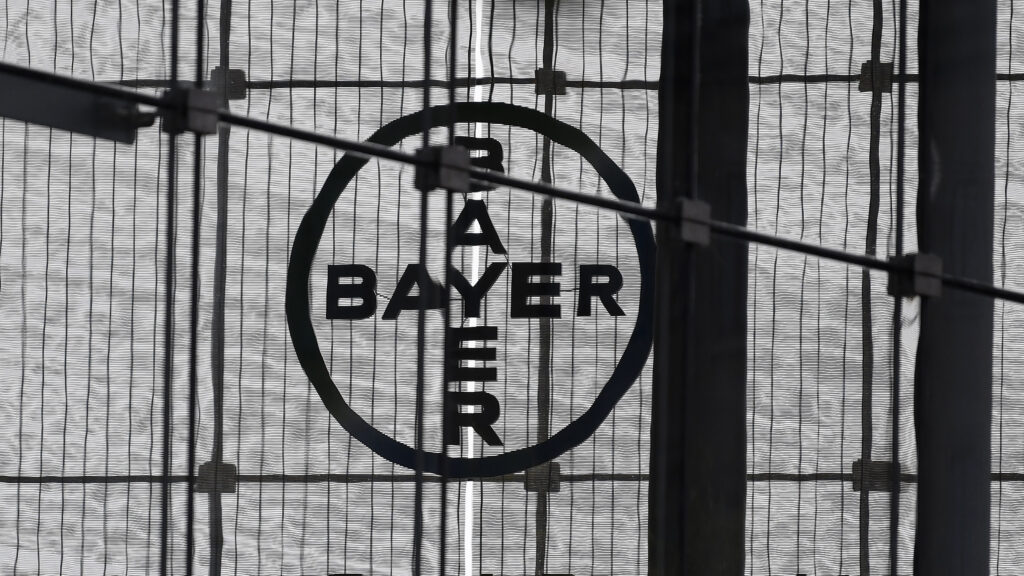Want to stay on top of the science and politics driving biotech today? Sign up to get our biotech newsletter in your inbox.
Good morning, everyone. Damian here with a look at an ambitious genomics startup, some cautious optimism on Wall Street, and a rough day for an American in Germany.
advertisement
The need-to-know this morning
• MorphoSys said its experimental treatment for myelofibrosis, a rare type of bone marrow cancer, achieved the primary efficacy goal in a pivotal trial. But the drug faltered in addressing patient symptoms, raising questions about its chances for approval and causing the German company’s stock to fall in early Tuesday trading.
• Merck said it will acquire Caraway Therapeutics, a privately held developer of drugs for genetically defined, neurodegenerative diseases, for $610 million. Caraway’s drug candidates, targeting Parkinson’s disease, are in preclinical development.
How battle-tested cells can lead to new drugs
The genomics revolution forever changed drug development by allowing scientists to comb through the roughly 3 billion base pairs of the human genome in search of promising biological targets. But what if researchers could learn not just from a person’s inherited DNA but from the scattered mutations that take place in the trillions of cells that make up the human body?
That’s the idea behind Quotient Therapeutics, a startup making its debut today with $50 million from Flagship Pioneering and a plan to turn the chaos of evolution into new medicines. Every cell goes through random genetic changes. Some predispose people to disease, while others might prevent it. “So as disease biology rains down on our tissues, it’s like snow falling on a variable genetic landscape, not a uniform one,” said Quotient CEO Geoffrey von Maltzahn. Studying the shapes under that snowfall, “one can infer whether divergence of phenotype at an individual cellular level in fact might be the result of those cells having discovered the cure for that disease.”
advertisement
Quotient’s job is to find those evolutionarily adept cells, decode what makes them so resilient, and then replicate those traits with manufacturable medicines. That involves isolating cells from donor tissue, sorting out which are genetically different from the rest, and then using computational techniques to separate signal from noise. There’s a lot of work ahead, but the company has already been at work for two years, leaning on its academic partners at the U.K.’s Wellcome Sanger Institute and the University of Texas Southwestern.
Maybe next year will be different
At least that’s what investors seem to think.
J.P. Morgan surveyed 77 people on the buyside and found that 51% expect biotech to beat the S&P 500 in 2024. Another 16% figure the sector will match the broader market, and the rest expect it to underperform. The majority of respondents, 61%, ranked interest rates as the most important factor impacting biotech in 2024, beating out clinical data readouts, M&A, and drug pricing legislation.
It’s worth noting that in last year’s edition of the same survey, 73% of respondents expected biotech to beat the S&P in 2023, a year in which the sector underperformed by more than 25%. That suggests the year’s persistent red tape was more than a little chastening for Wall Street’s biotech specialists.
Bayer’s new CEO dealt a duo of ‘clearing events’
First came the surprising news that asundexian, Bayer’s future-blockbuster blood thinner, had failed in a pivotal trial. Then came the probably less surprising news that Bayer had lost yet another case tied to the weedkiller Roundup, with a Missouri jury ordering the company to pay about $1.6 billion.
The news sent Bayer’s share price to its lowest level in more than a decade. For CEO Bill Anderson, now seven months into the job, the twin developments underline tough choices ahead. The legal liabilities of Roundup, acquired in Bayer’s disastrous $63 billion purchase of the agriculture firm Monsanto, have led shareholders to call for the company to separate its crops business from its comparatively sound pharmaceuticals division, an idea to which Anderson hasn’t committed.
The shocking failure of asundexian, a medicine that was supposed to return Bayer’s drugs business to growth after some of its key products face generic competition, complicates the situation. The future of Bayer as a pharmaceutical concern is now considerably murkier, as Xarelto and Eyelea, long the company’s top-selling medicines, age toward irrelevance.
What if Alzheimer’s vaccines were ahead of their time?
Two decades ago, the cutting edge of Alzheimer’s disease research relied on giving people a vaccine that would spur their immune systems to produce antibodies against the beta-amyloid proteins that build up in the brain. After a few alarming cases of neuroinflammation, a key clinical trial ran aground, and the vanguard pivoted to man-made amyloid antibodies that might do the same job more safely.
Now, researchers are coming around to the idea that the vaccination strategy might have been ahead of its time. There are at least seven Alzheimer’s vaccines now in clinical development, Reuters reports, including early-stage projects from Prothena and AC Immune. Each seeks to best the modest benefits of antibody treatments while avoiding the safety issues of earlier efforts.
The key, researchers said, is precision. Yesteryear’s Alzheimer’s vaccines triggered the immune system’s T cells, which attack foreign objects, and thus triggered unwanted responses. Newer candidates are meant to hit only the body’s antibody-producing B cells, ideally minimizing the potential for inflammation.
More reads
• Delay of eye drop recall highlights FDA’s impotence on the issue, STAT
• Pfizer is working on oral alternative to Ozempic, Bloomberg
• How the CEO of the largest medical device accelerator molds medtech startups, STAT

